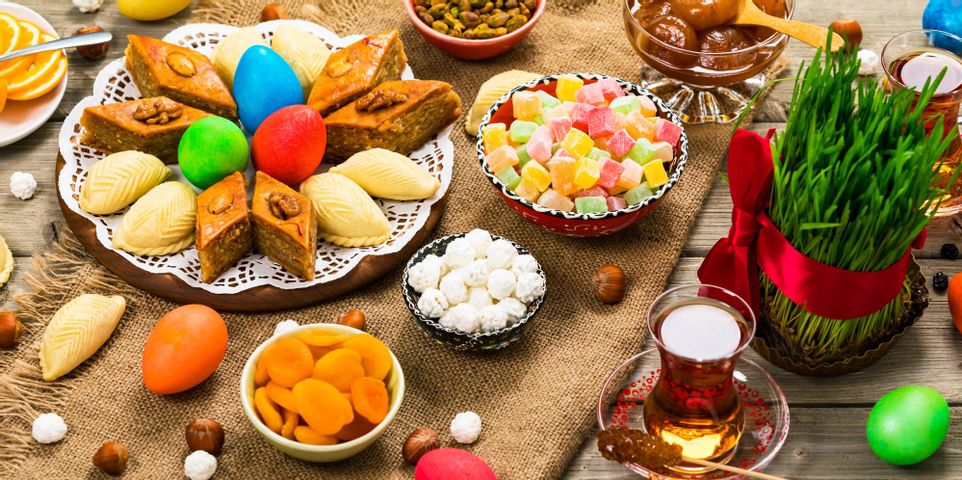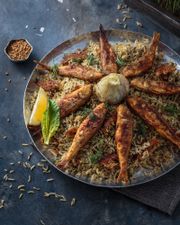
Persian New Year, or Nowruz, is a momentous occasion celebrating new life in the coming season. Every year, Nowruz begins at the start of the spring equinox on March 21. Revelers in Iran and around the world carry out several historical traditions, such as cleaning out their homes, wishing for good luck, and enjoying delicious Persian food. The following guide explores a few common practices and dishes you could expect to see on Nowruz.
How to Celebrate the Persian New Year
Common Traditions
Actual preparations for Nowruz begin weeks before the holiday. Families take this time to thoroughly clean their homes, representing a fresh start with the new year. This includes throwing out items you no longer have use for and hanging rugs outside to beat the dust from them.
As Nowruz approaches, everyone prepares a haft-seen — a selection of items chosen to signify different hopes for the new year. Typically, this setup includes sabzeh, sprouts grown leading up to the holiday to symbolize rebirth; sib, apples for health and beauty; samanu, a sweet pudding made from wheat germ to bring affluence; seer, or garlic for medicine; senjed, dried fruit from the Persian olive tree to symbolize love; serkeh, vinegar to symbolize patience and the wisdom gained from age; and somaq, or sumac berries for the color of sunrise. All seven components of haft-seen start with an “s,” but many families display additional items for cultural or historical reasons.
Decorated eggs for fertility, mirrors for self-reflection, and candles for enlightenment are common additions. The arrival of Nowruz brings 13 days of lively family dinners and reflections for the coming year. On the 13th day, families release the sabzeh they’ve been growing in a body of water to transition into the new year.
Popular Food
 With every cultural celebration comes delectable dishes made especially for the occasion, and Persian New Year is no different. During these 13 days of celebration, families indulge in variousflavorful meals and sweets. One popular Persian food for Nowruz is sabzi polo ba mahi, a traditional New Year’s Day lunch consisting of fish served on a bed of rice with green herbs. This dish is said to bring good luck. Kuku sabzi, a tasty green frittata made with eggs and an impressive number of herbs, is often served on the last day of Nowruz. Sweets are also critical features of the holiday, and desserts like baklava, kolcha e nowrozi, and sohan asali are served generously throughout the festivities.
With every cultural celebration comes delectable dishes made especially for the occasion, and Persian New Year is no different. During these 13 days of celebration, families indulge in variousflavorful meals and sweets. One popular Persian food for Nowruz is sabzi polo ba mahi, a traditional New Year’s Day lunch consisting of fish served on a bed of rice with green herbs. This dish is said to bring good luck. Kuku sabzi, a tasty green frittata made with eggs and an impressive number of herbs, is often served on the last day of Nowruz. Sweets are also critical features of the holiday, and desserts like baklava, kolcha e nowrozi, and sohan asali are served generously throughout the festivities.
Celebrate the Persian New Year authentically with delicious meals from Sufi Kitchen. Based in Atlanta, GA, this restaurant prepares mouthwatering Persian food using the best ingredients. Whether you’re enjoying a quiet dinner or taking advantage of full-service catering, their incredible range of flavors and top-notch customer service are sure to impress. Browse the menu online or call (404) 888-9699 to make a reservation.
About the Business
Have a question? Ask the experts!
Send your question

